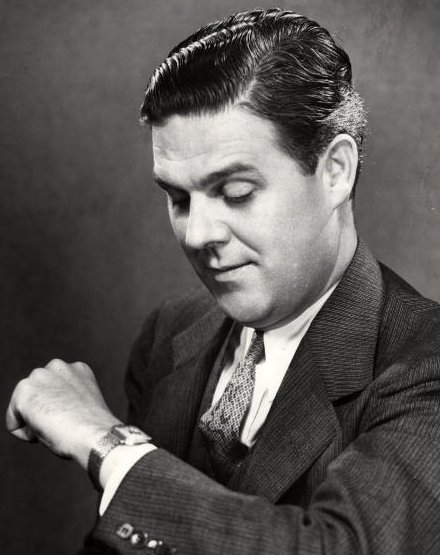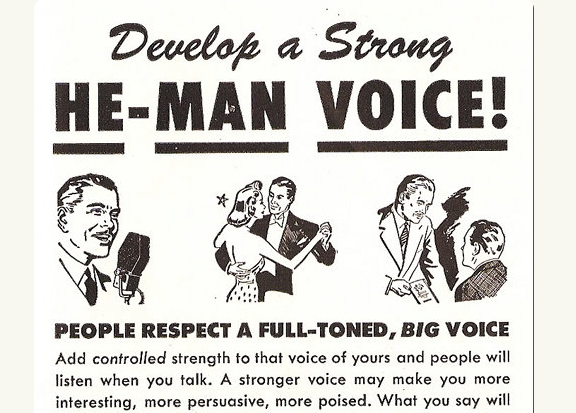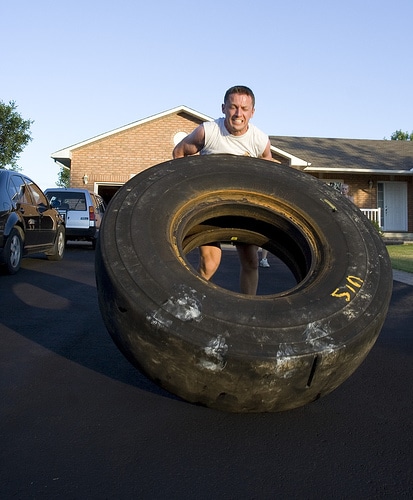Editor’s note: The following is an excerpt from The Business of Living by Frank Crane. It has been condensed from the original. Published in 1920, it’s a real gem. Enjoy the read.
The voyager entering a new country will listen with attention to the traveler who is just returning from its exploration; and the young warrior buckling on his armor may be benefitted by the experiences of the old warrior who is laying his armor off. I have climbed the Hill of Life, and am past the summit, I suppose, and perhaps it may help those just venturing the first incline to know what I think I would do if I had it to do over.
I have lived an average life. I have had the same kind of follies, fears, and fires my twenty-one-year-old reader has. I have failed often and bitterly. I have loved and hated, lost and won, done some good deeds and many bad ones. I have had some measure of success, and I have made about every kind of mistake there is to make. In other words, I have lived a full, active, human life. And have got thus far safely along.
I am on the shady side of fifty. As people grow old they accumulate two kinds of spiritual supplies: one, a pile of doubts, questionings, and mysteries; and the other, a much smaller pile of positive conclusions. There is great temptation to expatiate upon the former subjects, for negative and critical statements have a seductive appearance of depth and much more of a flavor of wisdom than clear and succinct declarations. But I will endeavor to resist this temptation, and will set down, as concisely as I can, some of the positive convictions I have gained.
For the sake of orderly thought, I will make Ten Points. They might of course just as well be six points or forty, but ten seems to be the number most easily remembered, since we have ten fingers, first and “handiest” of counters.
1. If I Were Twenty-One I Would “Do the Next Thing”
The first duty of a human being in this world is to take himself off other people’s backs. I would go to work at something for which my fellow-men would be willing to pay. I would not wait for an Ideal Job. The only ideal job I ever heard of was the one some other fellow had.
It is quite important to find the best thing to do. It is much more important to find something to do. If I were a young artist, I would paint soap advertisements, if that were all opportunity offered, until I got ahead enough to indulge in the painting of madonnas and landscapes. If I were a young musician, I would rather play in a street band than not at all. If I were a young writer, I would do hack work, if necessary, until I became able to write the Great American Novel.
I would go to work. Nothing in all this world I have found is so good as work.
2. If I Were Twenty-One, I Would Adjust Myself
More people I have known have suffered because they did not know how to adjust themselves than for any other reason. And the happiest hearted people I have met have been those that have the knack of adapting themselves to whatever happens.
I would begin with my relatives. While I might easily conceive a better set of uncles, aunts, cousins, brothers, and so on, yet Destiny gave me precisely the relatives I need. I may not want them, but I need them. So of my friends and acquaintances and fellow workmen. Every man’s life is a plan of God. Fate brings to me the very souls out of the unknown that I ought to know. If I cannot get along with them, be happy and appreciated, I could not get along with another set of my own picking. A man who is looking for ideal human beings to make up his circle of acquaintances would as well go at once and jump into the river.
The God of Things as They Ought to Be is a humbug. There is but one God, and He is the God of Things as They Are.
Half of my problem is Me; the other half is Circumstances. My task is to bring results out of the combination of the two.
Life is not like a problem in arithmetic, to be solved by learning the rule; it is more like a puzzle of blocks, or wire rings—you just keep trying one way after another, until finally you succeed, maybe.
In the Game of Life, as in a game of cards, we have to play the cards dealt us; and the good player is not the one who always wins, but the one who plays a poor hand well.
3. If I Were Twenty-One, I Would Take Care of My Body
The comfort and efficiency of my days depend fundamentally upon the condition of this physical machine I am housed in. I would look out for it as carefully as I attend to my automobile, so that it might perform its functions smoothly and with the minimum of trouble.
To this end I would note the four X’s. They are Examination, Excretion, Exercise, and Excess.
Examination: I would have my body thoroughly inspected by intelligent scientists once a year. I do not believe in thinking too much about one’s health, but I believe in finding out the facts, and particularly the weaknesses, of one’s mechanism, before one proceeds to forget it.
Excretion: By far the most important items to attend to in regard to the body is the waste pipes, including the colon, the bladder, and the pores. Most diseases have their origin in the colon. I would see to it that it was thoroughly cleaned every day. In addition I would drink plenty of water, and take some form of exercise every day that would induce perspiration. Most of my sicknesses have come from self-poisoning, and I would make it my main care to eliminate the waste.
Exercise: I would, if I were twenty-one, take up some daily system of exercise that would bring into play all the voluntary muscles of the body, and especially those which from my occupation tend to disuse. I would devote half an hour to an hour to this purpose.
Excess: I would take no stimulant of any kind whatsoever. Whatever whips the body up to excess destroys the efficiency of the organism. Hence, I would not touch alcoholic drinks in any form. If one never begins with alcohol, he can find much more physical pleasure and power without it.
I would drink no tea or coffee, as these are stimulants and not foods. Neither would I use tobacco. The healthy human body will furnish more of the joy of life, if it is not abused, than can be given by any of the artificial tonics which the ignorance and weakness of men have discovered.
If I were twenty-one, all this!
4. If I Were Twenty-One, I Would Train My Mind
I would realize that my eventual success depends mostly upon the quality and power of my brain. Hence, I would train it, so as to get the best out of it.
Most of the failures I have seen, especially in professional life, have been due to mental laziness. I was a preacher for years, and found out that the greatest curse of the ministry was laziness. It is probably the same among lawyers and physicians. It certainly is so among actors and writers. Hence, I would let no day pass without its period of hard, keen mental exertion, so that my mind would be always as a steel spring, or like a well-oiled engine, ready, resilient, and powerful.
And in this connection I would recognize that repetition is better than effort. Mastery, perfection, the doing of difficult things with ease and precision, depend more upon doing things over and over than upon putting forth great effort.
I would especially purge myself as far as possible of intellectual dishonesty. By intellectual dishonesty I mean what is called expediency; that is, forming or adhering to an opinion, not because we are convinced of its truth, but because of the effect it will have. A mind should, at twenty-one, marry Truth, and “cleave only onto her, till death do them part, for better, for worse.”
5. If I Were Twenty-One, I Would Be Happy
By this I imply that anyone can be happy if he will. Happiness does not depend on circumstances, but upon Me.
This is perhaps the greatest truth in the world, and the one most persistently disbelieved.
Happiness, said Carlyle, is as the value of a common fraction, which results from dividing the numerator by the denominator. The numerator, in life, is What We Have. The denominator is What We Think We Ought to Have. Mankind may be divided into two classes: Fools and Wise. The fools are eternally trying to get happiness by multiplying the Numerator; the wise divide the Denominator. They both come to the same—only one you can do and the other is impossible.
If you only have one thousand dollars and you think you ought to have two thousand dollars, the answer is one thousand divided by two thousand, which is one half. Go and get another thousand and you have two thousand divided by two thousand, which is one; you have doubled your contentment. But the trouble is that in human affairs as you multiply your numerator you unconsciously multiple your denominator at the same time and you get nowhere. By the time your supply reaches two thousand dollars your wants have risen to twenty-five hundred dollars.
How much easier simply to reduce your Notion of What You Ought to Have. Get your idea down to one thousand, which you can easily do if you know the art of self-mastery, and you have one thousand divided by one thousand which is one, and a much simpler and more sensible process than that of trying to get another one thousand dollars.
This is the most valuable secret of life. Nothing is of more worth to the youth than to awake to the truth that he can change his wants.
So, if I were twenty-one, I would make up my mind to be happy. You get about what is coming to you, in any event, in this world, and happiness and misery depend on how you take it; why not be happy?
6. If I Were Twenty-One, I Would Get Married
I would not wait until I became able to support a wife. I would marry while poor, and marry a poor girl. I have seen all kinds of wives, and by far the greatest number of successful ones were those that married poor.
Any man of twenty-one has a better chance for happiness, moral stature, and earthly success, if married than if unmarried.
I married young, and poor as Job’s turkey. I have been in some hard places, seen poverty and trial, and I have had more than my fair share of success, but in not one instance, either of failure or triumph, would I have been better off single. My partner is this task of living has doubled every joy and halved every defeat.
Many young people today play the fool and marry the wrong person, but my observation has been that “there’s no fool like the old fool,” that the longer marriage is postponed the greater are the chances of mistakes, and that those couples are the most successful in matrimony who begin in youth and grow old together.
7. If I Were Twenty-One, I Would Save Money
Money has a deal to do with contentment in this workaday world, and I’d have some of my own. There isn’t a human being but could save a little. Every man, in America at least, could live on nine-tenths of what he does live on, and save the other tenth. And the man who regularly saves no money is a fool, just a plain fool, whether he be an actor getting one thousand dollars a day or a ditch-digger getting one dollar a day.
8. If I Were Twenty-One, I Would Study the Art of Pleasing
Much of the content from life is due to having pleasant people around you. Hence, I would form habits and cultivate manners that would please them.
For instance, I would make my personal appearance as attractive as possible. I would look clean, well-dressed and altogether as engaging as the material I had to work with would allow.
I would be punctual. To keep people waiting is simply insolent egotism.
I would, if my voice were unpleasant, have it cultivated until it became agreeable in tone. I would speak low. I would not mumble, but learn the art of clear, distinct speech.
I would learn the art of conversation, of small talk. I would equip myself to be able to entertain the grouchiest, most blasé people. For there is hardly a business in the world in which it is not a great advantage to be able to converse entertainingly.
The secret of being a good conversationalist is probably a genuine unselfish interest in others. That and practice. It consists more in making the other person talk than in talking yourself.
I would not argue. I never knew one person in my life that was convinced by argument. Discuss, yes; but not argue. The difference is this: in discussion you are searching for the truth, and in argument you want to prove that you are right. In discussion, therefore, you are anxious to know your neighbor’s views, and you listen to him. In argument, you don’t care anything about his opinions, you want him to hear yours, hence, while he’s talking you are simply thinking over what you are going to say as soon as you get a chance.
Altogether, I would try to make my personality pleasing, so that people would in turn endeavor to be pleasing to me.
9. If I Were Twenty-One, I Would Determine, Even If I Could Never Be Anything Else in the World, That I Would Be a Thoroughbred
Thoroughbred, as it is currently used, is a word difficult to define, perhaps entirely non-definable. Yet we all know what it means.
It implies being a good sport, by which I mean the kind of man that does not whine when he fails, but gets up smiling and tackles it again, the kind of man whose fund of cheer and courage does not depend on success, but keeps brave and sweet even in failure.
Most people are quitters. They reach their limit. They are familiar with the last straw.
But the hundredth man is a thoroughbred. You cannot corner him. He will not give up. He cannot find “fail” in his lexicon. He never learned to whine.
10. If I Were Twenty-One, I Would Make Some Permanent, Amicable Arrangement With My Conscience
God, Duty, Death, and Moral Responsibility are huge facts to which no life can escape. They are the eternal sphinxes by the road of every man’s existence. He must frame some sort of an answer to them.
It may please the reader to know how I have answered them. It is very simple.
I am familiar, to some extent, with most of the religions, cults, and creeds of mankind. There are certain points common to every decent religion, for in every kind of church you are taught to be honest, pure-minded, unselfish, reverent, brave, loyal, and the like.
These elements of religion may be called the Great Common Divisor of all faiths.
This G. C. D. is my religion. It is what over fifty years of thought and experience has winnowed out for me. It is my religion. And I think I glimpse what Emerson meant when he wrote that “all good men are of one religion.”
And the matter can be reduced to yet plainer terms. There is but “one thing needful,” and there’s no use being “careful and troubled about many things.” That one thing is to do right.
To do Right and not Wrong will save any man’s soul, and if he believes any doctrine that implies doing wrong he is lost.
So, let a man of twenty-one resolve, and keep his purpose, that, no matter what comes, no matter how mixed his theology may be, no matter what may be the rewards of wrongdoing, or the perils and losses of rightdoing, he will do right.
And the corollary of this is that if I have done wrong, the best and only way to cure it is to quit doing wrong and begin doing right. If any man will stick to this, make it his anchor in times of storm, his pole-star in nights of uncertainty, he will cast out of his life that which is life’s greatest enemy—Fear. He need not fear man, nor woman, nor governments, nor mischief-makers, nor the devil, nor God. He will be able to say with the accent of sincerity that word of William Ernest Henley, to me the greatest spiritual declaration in any language:
Out of the night that covers me,
Black as the pit from pole to pole,
I thank whatever gods may be
For my unconquerable soul.In the fell clutch of circumstance
I have not winced nor cried aloud.
Under the bludgeonings of chance
My head is bloody, but unbowed.It matters not how strait the gate,
How charged with punishments the scroll,
I am the master of my fate,
I am the captain of my soul.
Let me repeat that I have not been telling what I did with the implication that the youth of twenty-one would do well to follow me. I did not do all these things. Far from it! I wish I had. I only say that if I were twenty-one, as I now see life, I would do as I have here suggested. But perhaps I would not. I might go about barking my shins and burning my fingers, making idiotic experiments in the endeavor to prove that I was an exception to all the rules, and knew a little more than all the ancients. So let not the young man be discouraged if he has committed follies; for there seems to emerge a peculiar and vivid wisdom from error, from making an ass of one’s self, and all that, more useful to one’s own life than any wisdom he can get from sages or copybooks.
In what I have written I have not tried to indicate the art of “getting on,” or of acquiring riches of position. These usually are what is meant by success. But success is of two kinds, outward and inward, or apparent and real. Outward success may depend some upon what is in you, but it depends more upon luck. It is a gambling game. And it is hardly worth a strong man’s while. Inward and real success, on the contrary, is not an affair of chance at all, but is as certain as any natural law. Any human being that will observe the laws of life as carefully as successful businessmen observe the laws of business will come to that inward poise and triumph which is life’s happiest crown, as certainly as the stars move in their courses.
I would, therefore, if I were twenty-one, study the art of life. It is good to know arithmetic and geography and bookkeeping and all practical matters, but it is better to know how to live, how to spend your days that at the end of it you shall be content, how to spend your life so that you feel it has been worth while.







